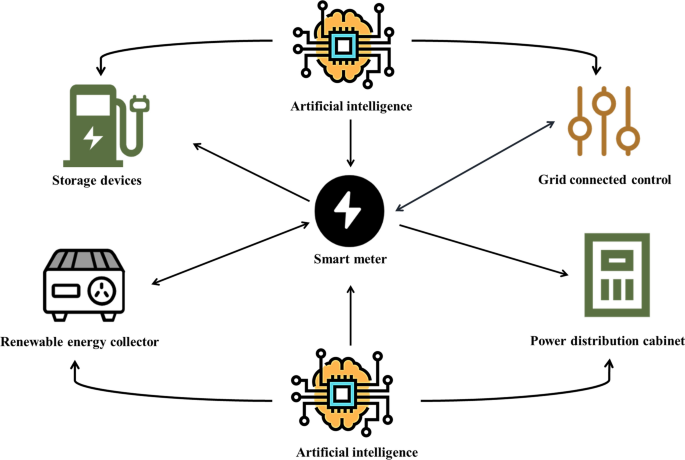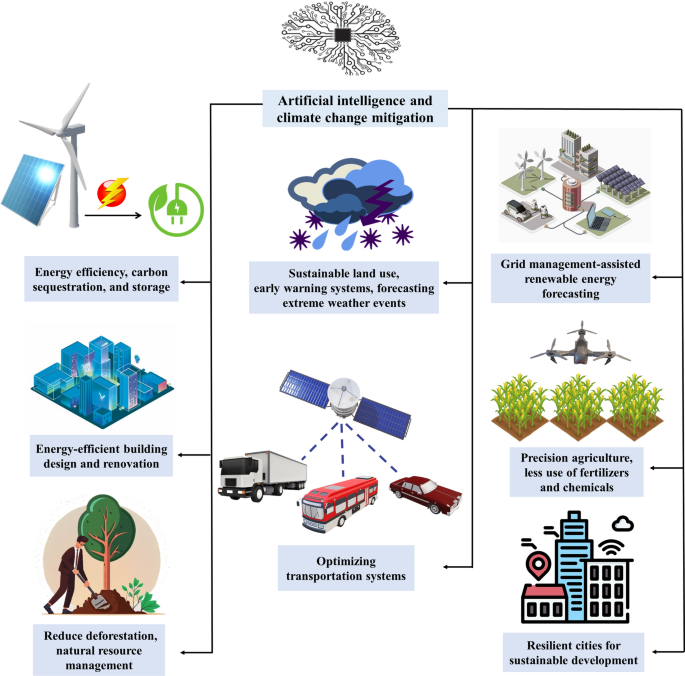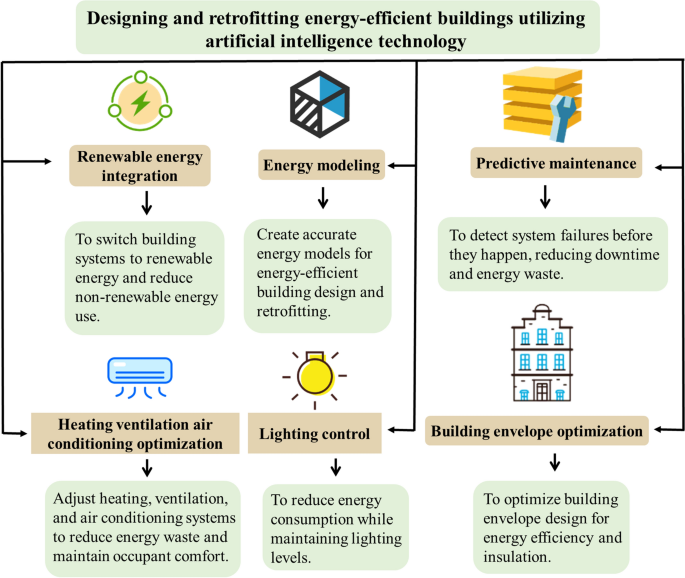Harnessing Artificial Intelligence for Climate Change Mitigation and Adaptation
Harnessing Artificial Intelligence for Climate Change Mitigation and Adaptation
Introduction: Climate change is one of the most pressing challenges facing humanity today. Its impacts are far-reaching, affecting ecosystems, economies, and livelihoods worldwide. Addressing climate change requires innovative solutions, and artificial intelligence (AI) offers promising tools to mitigate its effects and facilitate adaptation strategies. This essay explores how AI can be harnessed to combat climate change effectively.

AI in Climate Modeling:
One of the primary applications of AI in climate change is in improving climate modeling. AI algorithms can analyze vast amounts of data from various sources, including satellite imagery, weather stations, and ocean sensors, to enhance the accuracy and reliability of climate predictions. Machine learning techniques enable better understanding of complex climate systems, leading to more precise forecasts of extreme weather events, sea level rise, and temperature changes.
Renewable Energy Optimization:
Transitioning to renewable energy sources is crucial for reducing greenhouse gas emissions. AI plays a pivotal role in optimizing the integration and management of renewable energy systems. AI algorithms can analyze data on weather patterns, energy demand, and grid operations to optimize the generation, storage, and distribution of renewable energy. Smart grids equipped with AI-enabled technologies can balance supply and demand dynamically, maximizing the efficiency of renewable energy sources and reducing reliance on fossil fuels.

Challenges and Considerations: While AI presents significant opportunities for climate change mitigation and adaptation, several challenges and considerations must be addressed. These include ethical implications, such as AI bias in climate modeling and decision-making, data privacy concerns, and the digital divide. Additionally, the deployment of AI technologies may require substantial investments in infrastructure, capacity building, and regulatory frameworks to ensure equitable access and maximize benefits for vulnerable communities.
Conclusion:
Artificial intelligence has emerged as a powerful tool in the fight against climate change. By leveraging AI-driven innovations in climate modeling, renewable energy optimization, climate monitoring, and carbon capture, humanity can accelerate the transition to a sustainable and resilient future. However, realizing the full potential of AI in addressing climate change requires concerted efforts from policymakers, scientists, industry stakeholders, and civil society to overcome challenges and promote responsible AI deployment for the benefit of present and future generation.
Compiled by : Pratiksha Bisht


Comments
Post a Comment